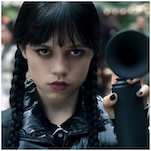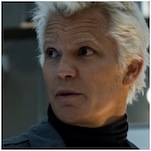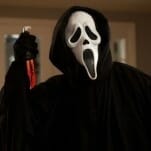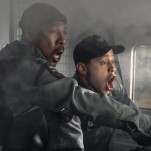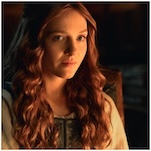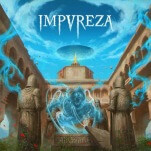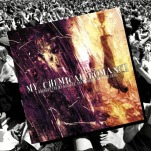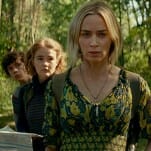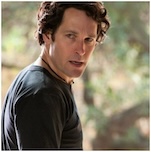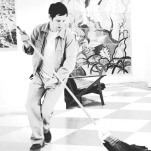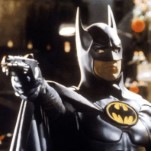Sundance Preview: Director Steve James on Life Itself
All this week Paste is bringing you preview interviews with filmmakers who are bringing their new films to Sundance. Any new film by friend of Paste Steve James is cause for celebration, but for film fans this one is maybe a little b1t extra special. The celebrated director of Hoop Dreams, The Interrupters, and a number of other great films premieres his new documentary Life Itself, based on the late Roger Ebert’s autobiography, to Sundance audiences this week. We spoke with James about the film, the other star that emerges in it, what advice he has for first-time Sundance directors, and much more.
Paste: Now, you based the documentary primarily on Ebert memoir, right?
Steve James: Yeah, that really is the foundation of the film, and the inspiration for it. I was really taken with his book. It’s such a beautifully written memoir, in part because he was such a great writer. It’s by turns funny and poignant, and really insightful. The way he structures it, he kind of goes back and forth between his present place and time, which includes some of his medical travails and how he’s dealt with them, and the past. And that’s kind of something we tried to do in the movie as well. We were able to film with Roger for the last four months of his life. When we started filming, no one expected that would be the case. My intention in filming him in the present was, in part, to show just how vibrant his life still was, despite all that he’d been through – he was going to screenings, throwing dinner parties, attending events. We had all that planned, and then literally days before we were to start filming some of those activities, he complained of some pain in his hip, and went into the hospital and found it was fractured. So it changed the film, but when you see the film, I hope you’ll agree that, despite the fact that you know that you’re seeing the last four months of his life in the movie, one of the things that was so impressive was that he was still Roger. Still cracking jokes, same great spirit, same will and determination. It was all there. So I don’t find those moments in the film depressing. There are some sobering moments, but it’s still Roger.
Paste: I’ve never met his wife Chaz, but from everything I’ve read and heard, I understand she’s pretty amazing. I would assume she emerges as one of the real heroes of the film?
James: Yeah, I think it’s fair to say that alongside Roger, she’s the star of the movie. I think that she’s everything you’ve heard, and more. This film is about a lot of things, I think, but one of the things it’s about is this incredible love affair between Roger and Chaz, how she changed him, and really saved him, helped him through those difficulties of his later years. She’s a remarkable woman. I hope I’ve done justice to just how remarkable she is.
Paste: Do you remember when you first discovered Roger’s work?
James: I was in grad school at Southern Illinois, studying film, when I was first exposed to the show. The show had started in 1976, and I was in grad school around 78 or 79. I had fallen in love with film my senior year of college, and then found my way to grad school to study it, and it was around that time that I really began to watch the show. And I remember, my first reaction was, “Why are a couple of guys from Chicago on this national criticism show?” Because at that time I was reading Pauline Kael and Andrew Sarris, and New York was the center of film criticism to me. So I remember tuning in more as a curiosity.
But as I watched, I became a fan. I thought it was not only exceedingly entertaining, but really insightful. I’ve had cause in doing this film, of course, to go back and look at a lot of those old shows, spanning the whole era. And one of the things that’s really struck me, even going back to the late Seventies, is that it’s still a really good show. I feel like if that show was on today, I’d be watching it. They managed, in a medium that makes its own demands of brevity and of what you can and can’t do in relation to film criticism, to still make it smart, and lively, and provocative, and something that made you think.
And of course, the genuine tension between them is part of what fueled what great entertainment it was. But it also fueled how smart it was. And sometimes I was with Gene, whether I’d seen the movie then, or looking back on it now, sometimes I agreed with Gene. But I mostly find that Roger represented my kind of aesthetic and emotional response to film. Roger, in his film criticism, always kind of wore his heart on his sleeve. If he loved the move, he loved it not just because he thought it was good filmmaking – that was important to him – but he loved it because of what it was trying to be about, whether it succeeded completely or not. You know? And not that Gene didn’t as well, but with Roger it was such a palpable part of the kind of critic that he was. Somebody in the film says that Roger wrote about movies as if he was sitting in the fifteenth row of the movie theater with a box of popcorn. He really did come to movies as one who loved movies, and you never lost sight of that in his reviews. Even when he was panning a movie, you saw that he loved movies.
-

-

-

-

-

-

-

-

-

-

-

-

-

-

-

-

-

-

-

-

-

-

-

-

-

-

-

-

-

-

-

-

-

-

-

-

-

-

-

-

